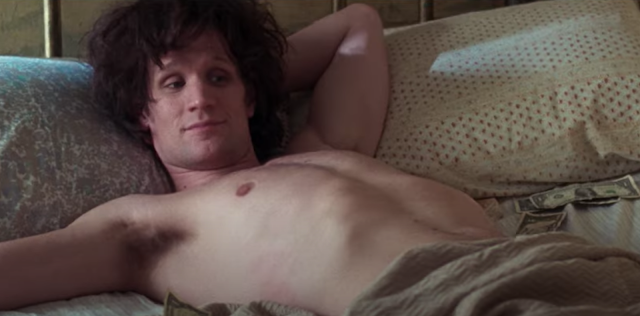 |
| Matt Smith in Mapplethorpe |
Cast: Matt Smith, Marianne Rendón, John Benjamin Hickey, Brandon Sklenar, Tina Benko, Mark Moses, Carolyn McCormick, Thomas Philip O'Neill, Mickey O'Hagan, Anthony Michael Lopez, McKinley Belcher III, Brian Stokes Mitchell. Screenplay: Ondi Timoner, Mikko Alanne, based on a screenplay by Bruce Goodrich. Cinematography: Nancy Schreiber. Production design: Jonah Markowitz. Film editing: John David Allen, Lee Percy, Ondi Timoner. Music: Marcelo Zarvas.
An unconventional artist like Robert Mapplethorpe deserves an unconventional biopic. Ondi Timoner's Mapplethorpe isn't. It's full of clichés like the meet-cute: Mapplethorpe (Matt Smith) meets Patti Smith (Marianne Rendón) on a park bench when she latches on to him as a pretend boyfriend to evade a pursuing creep. There are the usual clashes with the parents, a bullying father (Mark Moses) and an ineffectual mother (Carolyn McCormick). There's the chance meeting that launches him to success: The wealthy art collector Sam Wagstaff (John Benjamin Hickey) becomes both mentor and lover. And the faint funk of disapproval hangs over the film, as if Mapplethorpe's life were something of a warning to aspiring artists, especially queer ones. I think it wants to celebrate Mapplethorpe as an artist, but is afraid to do so, stepping gingerly around gay sexuality as if afraid of rousing the "ick factor" in a straight audience. The lives of artists are notoriously hard to dramatize, and everyone connected with Mapplethorpe deserves respect for trying, but they didn't succeed.














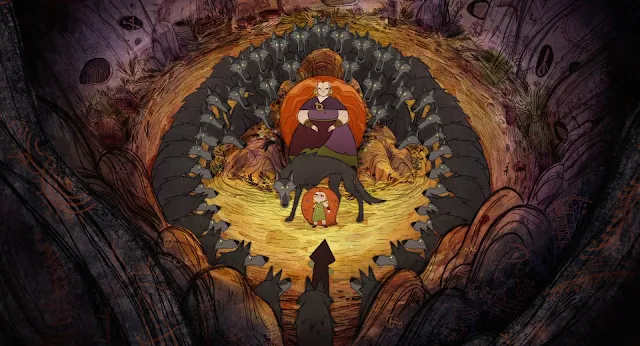
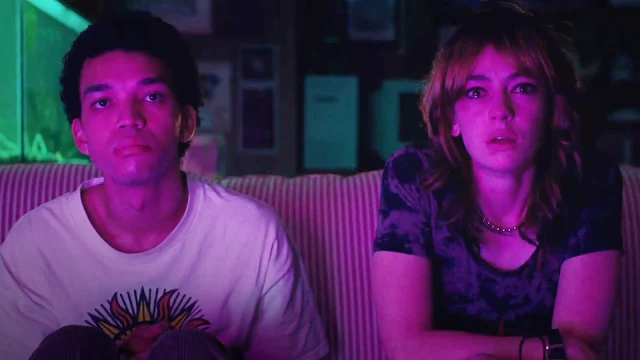
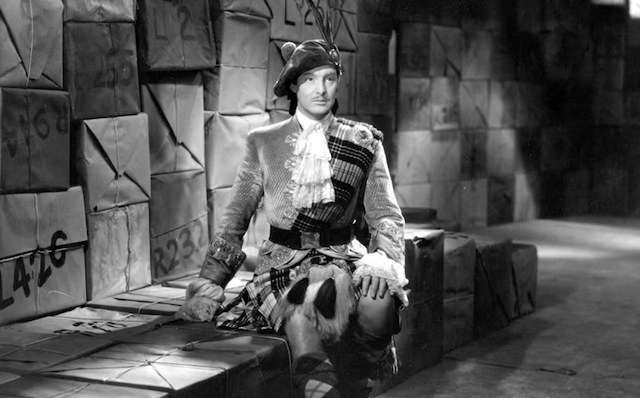
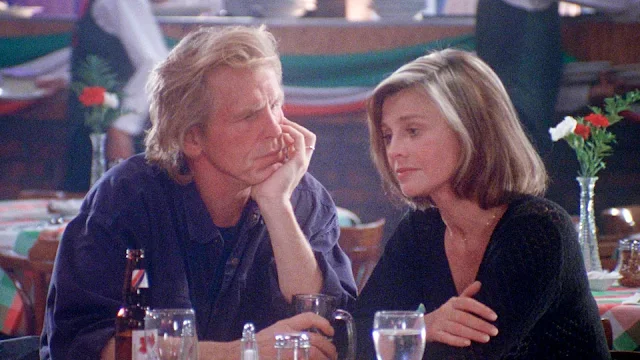






.jpg)










